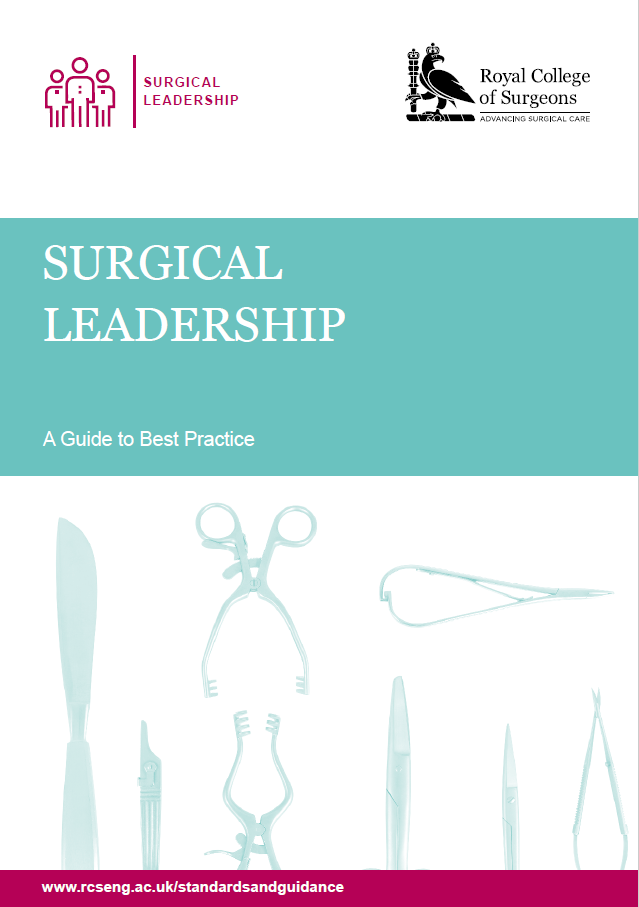Surgical Leadership

Good leadership is a central aspect of quality and safety in healthcare organisations. Sir Robert Francis QC, in his 2013 report following the Mid Staffordshire Public Inquiry, argued that strong, patient-centered leadership is needed to bring about a transformation of organisational culture in the NHS. In the clinical setting, consultant surgeons have the responsibility to develop an effective team through leadership and teambuilding. Surgical teams require leaders who understand the needs of patients and can inspire and manage the team to deliver those needs. Technical skills need to be complemented by non-clinical skills in order to facilitate communication and effective teamworking and lead to safer patient care.
Who is this guide for?
This document is intended to serve as a practical guide for surgeons who lead teams.
What can I learn form this guide?
Surgical Leadership complements the College’s guidance The High Performing Surgical Team – A Guide to Best Practice, domain 3 of Good Surgical Practice, and Leadership and Management of Surgical Teams.
This guide sets out the rationale for effective leadership and the recommended attributes and behaviours expected of the surgical leader. It provides standards and recommendations that can inform training, development and assessment of surgical leaders and leadership. The focus is on achieving positive outcomes for patient safety and a culture that promotes safe, efficient and compassionate care of patients and staff.

 Download the guidance
Download the guidance